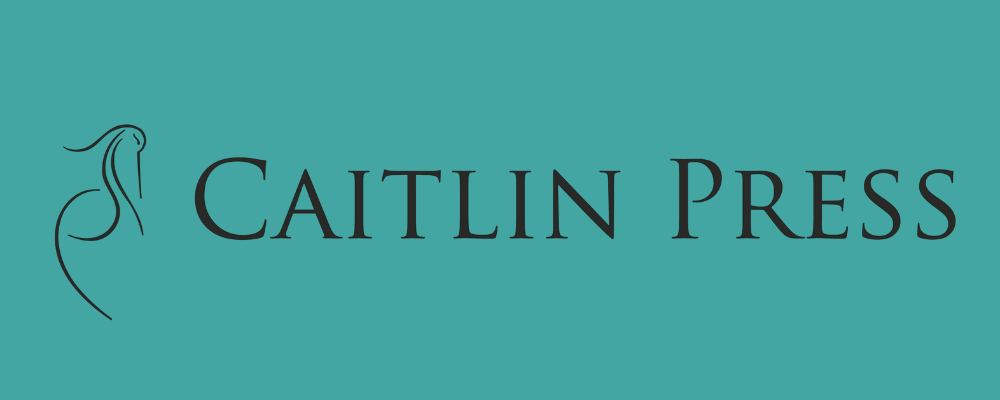Joana De Conti has an MA in Anthropology, although she left the academic world a long time ago to dedicate her time to digital publishing. She worked for many years in one of Brazil’s biggest publishing houses, Rocco, and has been at Bookwire for three years now. She has already converted dozens of books but stopped counting when she finished the 200th. Today Joana is Head of Account Management, using her leadership and organizational skills to improve the company’s processes.
The rise of audiobooks has been announced and praised worldwide recently. Last year, the Audio Publishers Association (APA) published a global overview of the audiobook marketplace, titled Global Audiobooks Data: Steps Toward Understanding the Size of the Market, showing that the audiobook industry has seen double-digit growth for the seventh year in a row, reaching almost $1 billion in sales in 2018 in the United States alone. It also shows that Europe, China, and the US are areas of key importance and that two of the three emerging markets — Spain, Italy, and India — are also located in Europe. If one tries to gather information about audiobooks sales on the world wide web, it’s very likely that they'll find dozens of articles that prove the importance and the potential of this old/new market. But it’s very unlikely that the gathered information will cover anything other than the areas already mentioned. Therefore, when people check audiobook reports and numbers, they're leaving aside an entire world (or almost an entire world) of places that could turn out to be strategic and wealthy audiobook development areas. Brazil, for instance, is one of those areas. This article attempts to give a glimpse into how audiobooks started in our country and the current status of the market. Although the title of this article might sound a bit too ambitious, our attempt in referencing APA’s title is to suggest a change of perspective that encompasses a wider territory.
A first glimpse
There’s no proper research behind this information but if you ask a Brazilian what they think about when they hear the word “audiobook,” 99% of the answers will be “Cid Moreira” or “the Bible.” Cid Moreira started his career on the radio as broadcaster and soon went to television, where he broke the record for anchoring the same news program for the longest time. In the early 2000s, Moreira was invited to narrate the audiobook version of the Bible which resulted in a huge set of CDs that sold almost 33 million copies. Although in the 1960s until at least the early 1990s, Brazil had many vinyl records of children’s stories that parents would play for them to listen to — and I include myself among those kids — I can say with confidence that Cid Moreira narrating the bible was the biggest milestone in the Brazilian audiobook history. So when publishers started to hear about audiobooks, there was already a strong reference and a content source — I’ll go back to that soon.
What publishers have been doing
As a developing country that often mirrors more mature markets to define its trends, Brazilian publishers closely followed the (not so) recent news that highlighted the huge potential of audiobooks. It was the talk of the town, first in international book fairs and then at every single national or local publishing event. In order to keep up, publishers had different strategies.
Some publishers shyly began to produce their first audiobooks and launched in the few stores available back then. In August 2018, Companhia das Letras, part of Penguin Random House Publishing Group, started their audiobook program with 14 titles produced in-house. While other publishers were already quoting and producing audiobooks, this was a remarkable release as Companhia is one of the leaders, and certainly a trendsetter, in many aspects of our market. It wasn't a big surprise though as Penguin Random House CEO, Markus Dohle, had said less than a month before that audiobooks were the future.
Many publishers wanted to follow Companhia’s example and they reached out to studios, retailers, aggregators, and partners to understand what it would take to make an audiobook. It required some expertise and it would cost, to their great disappointment, much more than an ebook. Some decided to invest in one, two, or just a few titles — usually their bestsellers — which was a good way to understand more about marketing, business models, retailers, and so on. And some partnered with a second party, which brings us to a third case.
Many publishers were contacted by Audible, Storytel, Ubook, Toca Livros, etc. Those players offered an exclusivity deal that wasn’t ideal due to their daunting deadlines but that could be a way of facing the challenging costs of an audiobook.
And now we go back to Cid Moreira. Publishers who had recorded audiobooks in the past had the chance to convert this material into digital formats and start with more content than others. There were some good productions, good titles, and some successful cases among that material, but publishers often faced copyright issues. Funnily enough, in many cases the problem was the voices. In the past it wasn't common for studios to sign agreements with the narrators. Some publishers are still fighting to get those recordings into the market: Cid Moreira’s Bible is still sold only on CDs.
The more than 400 Brazilian publishers distributed by Bookwire were offered a service called WAY. (The intent here isn't to make a pitch for the company that I work for, but to show how different partners can help to develop a market.) WAY stands for “We Audiobook You,” a tool to help publishers who had reservations or negative experiences with the audiobook market to develop their own audiobook catalogue simply and cost-effectively. Bookwire’s team manages the entire recording process — from choosing the right title, to bringing the final product to retailers — and assists publishers through each step. This turned out to be a simple solution that helped to create new content while strengthening the market.
What players have been doing
I mentioned some retailers and platforms earlier but here I’ll give more details about them, especially the Brazilian ones. The most famous download-to-own (DTO) retailer here is Google Play, followed by Kobo. They both have a Brazilian website, accept reais (our official currency), and have a small local team to support publishers.
Under the subscription model, we have some very particular examples. The first and most famous worldwide one is Storytel. The Swedish company arrived last September and over these few months managed to produce some interesting projects like a series of original, comforting short stories written by known Brazilian authors about the current self-isolation situation called Vai ficar tudo bem (Everything will be alright). Ubook and Toca Livros are Brazilian companies, and the oldest subscription players in the country. They both have their own apps — iOS and Android — and users can access exclusive content for a monthly fee. They also have their own studios and narrators, marketing support, and a production team These three players offered similar options for publishers: a partner to record their content in exchange for an exclusive contract for the titles.
Other than those three, it’s important to mention two other subscription players: The Pilgrim and Auti Books. As the name suggests, The Pilgrim is a tech company that offers digital content for Christian readers. They were founded in 2018 but recently have experienced a significant response from the audience, emerging as an important partner for religious and non-religious publishers. Although they have both ebooks and audiobooks, the company says the latter accounts for the majority of the users' accesses.
The last player is a unique case as it was founded by three of the biggest Brazilian publishers: Sextante, Record, and Intrínseca. They joined Bronze Ventures to launch the DTO and subscription platform: Auti Books. They have non-exclusive content from other publishers, but the audience will only find audiobooks from those three publishers there.
If you're familiar with the audiobook market, you’re probably aware that Audible and Apple Music/Audiobooks are two of the biggest retailers, if not the biggest ones. Well, they're not offering their services in Brazil, yet. This leaves an opportunity for growth for the companies mentioned above and for those other platforms that are considering expanding their services to this market.
Bookwire’s lesson
The story of Bookwire is the story of an unexpected internationalization. Bookwire is a German company created in 2010. After two years of development, the company decided to go international. The first idea, as shown in the images below, did not come along as planned:
Several factors contributed to that surprising outcome. Jens Klingelhöfer, Bookwire’s CEO, listed some of them in his Frankfurt Book Fair 2017 presentation:
But the lesson we want to highlight here is about the importance of paying attention to the maturity of the market one is trying to reach. If the market is too slow, or if the competition is already fierce, it will be harder to establish a new business there. From what we have seen by working at Bookwire, it’s time for different partners to arrive. Bookwire’s core business is digital content distribution: to provide services, software, and personal support for distribution and successful marketing of digital products. And we can say that there’s much to be improved in terms of content, production tools, studios, and places to distribute audiobooks.
In conclusion
We claim for every new partner that begins working with audiobooks in Brazil that this is the moment to invest in audiobooks, this is the moment to promote market growth. Right now, this growth is more important than which publisher has more titles, which retailer is selling more, or which business model is preferred by users. As Porter Anderson wrote a few months ago for one of his Publishing Perspective’s articles: “Needless to say, if a reliable set of statistics can be developed on a general higher-level view of audiobooks on the world scale, many publishers, authors, and markets can benefit with the predictive and comparative analysis likely to result.” Although I brought a qualitative analysis instead of a proper set of statistics, my intention is to give a general high-level overview of audiobooks in a local scale; I hope others can benefit from it.

















Sales and library circulation data of Body, Mind & Spirit titles during the the first quarter of 2025.